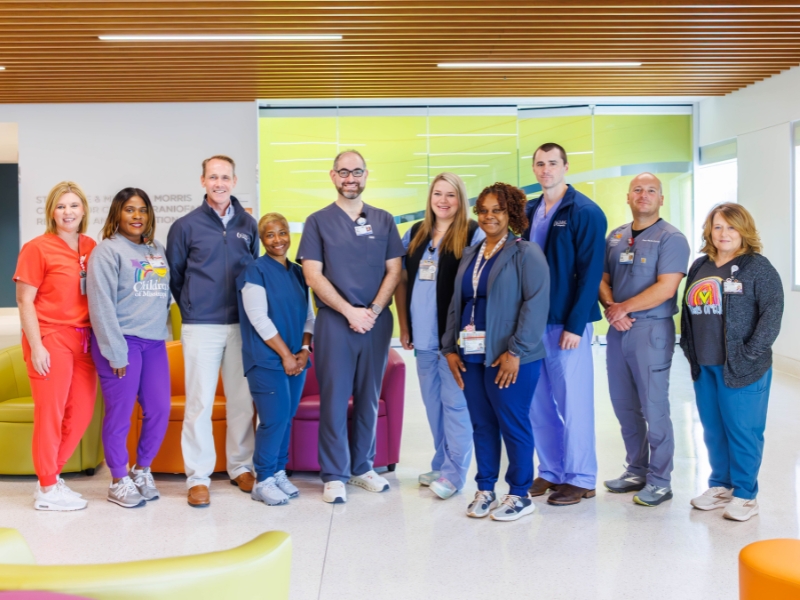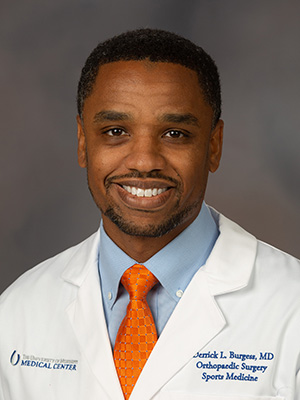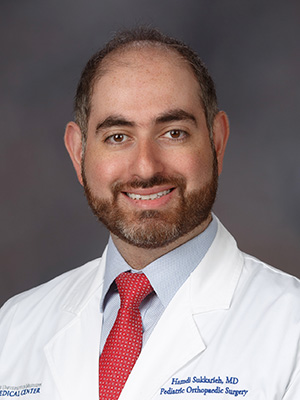New walk-in pediatric orthopaedic clinic now open

Playgrounds and playing fields can lead to myriad mishaps. To treat those injuries quickly, Children’s of Mississippi now has a walk-in pediatric orthopaedic clinic at the Kathy and Joe Sanderson Tower.
The clinic is open Monday through Friday from 8 a.m. to 3 p.m. and welcomes walk-in patients needing a pediatric orthopaedic specialist.
In addition, a nurse practitioner is available to see walk-in pediatric orthopaedic patients Monday through Friday from 8 a.m. to 3 p.m. at Colony Park South in Ridgeland. The walk-in clinics add to the ongoing orthopaedic options available at UMMC.
On Friday nights, an injury clinic offering full sports medicine evaluation and on-site radiology services will be open 9:30-11:30 p.m. at Colony Park South. The annual specialty clinic treats an array of sports injuries, from football to cheerleading.

“During the entire football season, we are open late for our pediatric patients so that they can have the convenience of being seen by a sports medicine physician immediately after their injury,” said Dr. Derrick Burgess, assistant professor of orthopaedic surgery. “This allows parents and athletes to avoid going to the Emergency Department on Friday night.”
Walk-in pediatric orthopaedic care makes access to treatment faster and more convenient, said Dr. Hamdi Sukkarieh, associate professor of orthopaedic surgery and chief of the Division of Pediatric Orthopaedics.

“We evaluate a wide range of musculoskeletal injuries, including those resulting from everyday falls and sports-related activities,” he said. “Common concerns such as limping, acute and subacute back pain, and upper and lower extremity pain are also frequently addressed.”
Parents whose children have more severe injuries, such as those involving exposed bone or active bleeding, are advised to seek immediate attention at the Emergency Department at Children's of Mississippi.
The advantages of the clinic’s location inside the Sanderson Tower are many, Sukkarieh said.
“In addition to convenient parking right next to the hospital, another significant benefit of the Sanderson Tower is the clinic’s proximity to the hospital entrance, streamlining access and reducing stress for families,” he said. “Once inside, patients are cared for by either pediatric orthopedic surgeons or nurse practitioners who specialize in pediatric musculoskeletal injuries and conditions, ensuring expert evaluation and management.”
Children’s of Mississippi’s state-of-the-art pediatric imaging center is nearby in the Sanderson Tower, he said, “so necessary X-rays or scans are completed without families having to leave the area.”
All essential medical equipment — including braces, crutches, and casting — is available within the same space, making the process efficient and comprehensive for both providers and families.
Since its launch earlier this summer, the clinic has been well received by families, Sukkarieh said.
“They have consistently praised the ease of check-in and the promptness with which their children were seen and evaluated,” he said. “The streamlined experience has helped alleviate much of the anxiety that often accompanies urgent visits, and families have welcomed the efficient process and attentive care provided by the clinic team.”
Families whose children need continued treatment have the flexibility of choosing where to go for follow-up care, Sukkarieh said, noting that Children’s of Mississippi’s pediatric orthopaedic specialists are available.
“The walk-in clinic is integrated within our pediatric orthopedic outpatient clinics, so patients and their families are already in a familiar environment should any ongoing care be required after their initial visit,” he said. “This continuity not only enhances comfort but also streamlines the transition to follow-up care, making the entire process smoother and more reassuring for families.”
The availability of walk-in care leads to faster diagnosis and treatment, Burgess said.
“Early diagnosis is key to getting children and athletes safely back to play,” he said.


